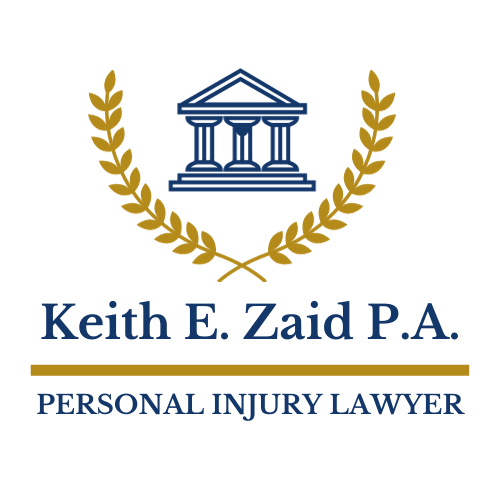Evidence Gathering in New Jersey Personal Injury Cases
Preserving evidence is a crucial aspect of ensuring justice in New Jersey personal injury cases. Understanding the process is essential for those seeking legal remedies. Evidence serves as the bedrock upon which personal injury claims are built, providing the basis for establishing liability and seeking compensation.
The Importance of Evidence in New Jersey Personal Injury Cases
In the realm of personal injury law, evidence is paramount. It is the factual information that supports your claims and can make or break your case. Evidence can include various types, such as physical evidence, documentary evidence, eyewitness testimony, and expert witness testimony. In New Jersey, evidence plays a pivotal role in demonstrating negligence, a central element in personal injury cases.
Evidence as the Foundation of Legal Claims
Evidence forms the foundation upon which personal injury claims in New Jersey are built. Without compelling evidence, it can be challenging to establish liability, and obtaining compensation becomes an uphill battle. The stronger your evidence, the better your chances of achieving a favorable outcome.
The Role of Evidence in Proving Negligence
Negligence is often central to personal injury cases in New Jersey. To succeed in a negligence claim, you must provide evidence that demonstrates the defendant’s breach of duty and how it directly led to your injuries. Strong evidence can help establish a clear link between the defendant’s actions and your suffering.
Types of Evidence in New Jersey Personal Injury Cases
In personal injury cases in New Jersey, various types of evidence come into play. Each type serves a unique purpose and contributes to building a comprehensive case.
Physical Evidence
Physical evidence includes tangible proof related to the incident. This can encompass damaged property, skid marks at an accident scene, or defective products. Physical evidence provides a visual representation of the event, making it impactful in court.
Documentary Evidence
Documents such as contracts, accident reports, medical bills, and insurance records are considered documentary evidence. These documents can help establish facts, timelines, and financial losses, supporting your claims.
Eyewitness Testimony
Eyewitness testimony is the account of individuals who witnessed the incident. Their statements can provide crucial insights into what transpired and who was at fault. Eyewitness testimony adds a human element to your case, making it relatable to judges and juries.
Expert Witness Testimony
In complex cases, expert witnesses in New Jersey bring specialized knowledge to the table. These experts, often professionals in fields related to your case (e.g., medical experts, accident reconstructionists), can provide authoritative opinions, clarify complex issues, and validate your claims.
The Process of Gathering and Preserving Evidence in New Jersey
To build a strong personal injury case in New Jersey, it’s essential to understand the process of gathering and preserving evidence. The following steps are critical in ensuring that your evidence remains compelling and admissible in court.
Immediate Steps After an Injury
Prompt action is crucial after an injury. Seek medical attention immediately if needed, and then take steps to document the incident. This includes noting details, taking photographs or videos, and collecting contact information from witnesses.
Documenting the Scene
Documenting the scene of an accident or incident is essential. Photographs and videos can capture important details that may become hazy with time. Visual evidence can recreate the conditions and context of the incident.
Collecting Witness Statements
Witness statements, collected as soon as possible after the incident, provide valuable accounts of what transpired. Witness recollections are often vivid in the immediate aftermath and can strengthen your case.
Securing Physical Evidence
Properly preserving and storing physical evidence is crucial. This ensures that it remains intact and uncontaminated. Physical evidence, such as damaged items or clothing, can be pivotal in demonstrating the extent of injuries.
Requesting Medical Records
If you’ve suffered injuries that require medical treatment, obtaining and preserving medical records is vital. These records substantiate your injuries and the medical care you received. They provide a clear picture of your physical condition and the associated costs.
Consulting with Experts
In complex cases requiring expert testimony, consulting with experts early on is crucial. Experts can assist in preserving evidence related to their areas of expertise and guide you on what evidence to collect.
Legal Strategies for Evidence Preservation in New Jersey
Preserving evidence is not solely the responsibility of the injured party; it often requires legal strategies to ensure that crucial information is safeguarded.
Issuing Preservation Letters
Preservation letters are formal requests sent to potential parties involved in the case, demanding that they preserve relevant evidence. These letters can be a powerful legal tool, compelling parties to retain evidence that might otherwise be destroyed.
Filing Protective Orders
In cases where evidence may be at risk of destruction or alteration, filing protective orders with the court can help safeguard it. Protective orders restrict parties from tampering with or destroying evidence during the litigation process.
Depositions and Interrogatories
Depositions involve taking sworn statements from relevant parties, while interrogatories are written questions that parties must answer under oath. Both methods can help elicit crucial information and preserve testimony.
Challenges and Considerations in Evidence Preservation in New Jersey
Preserving evidence is not without its challenges and considerations, particularly in a legal landscape where the spoliation of evidence can have severe consequences.
Spoliation of Evidence
Spoliation refers to the destruction, alteration, or concealment of evidence. In New Jersey legal proceedings, spoliation can result in adverse inferences, sanctions, or even the dismissal of claims. Parties must be diligent in preserving evidence and avoiding any actions that could be perceived as spoliation.
Electronic Evidence
In the digital age, electronic evidence plays a significant role. Preserving electronic evidence, such as emails, text messages, and digital documents, requires specific strategies due to the ease of deletion and alteration. It’s essential to work with experts who specialize in digital forensics when electronic evidence is involved.
The Role of a Personal Injury Lawyer in Evidence Preservation in New Jersey
Engaging the services of a skilled personal injury lawyer in New Jersey is instrumental in evidence preservation. Lawyers bring legal expertise, knowledge of New Jersey laws and procedures, and a network of resources to the table.
Early Legal Consultation
Seeking legal counsel from a personal injury lawyer in New Jersey as soon as possible after an injury is crucial. An experienced attorney can assess the details of your case, determine the applicable statute of limitations, and create a timeline to ensure compliance with the filing deadline. They also guide you on evidence preservation from day one.
Investigation and Preservation Efforts
Personal injury lawyers in New Jersey are skilled in conducting investigations and coordinating preservation efforts. They have the experience to gather, analyze, and secure evidence effectively, ensuring that no critical information is lost or destroyed.
Legal Expertise in Evidence Presentation
In court, presenting evidence effectively can make a substantial difference. Personal injury lawyers know how to introduce evidence persuasively, maximizing its impact on judges and juries. Their legal expertise helps build a compelling case that supports your claims.
Conclusion: Safeguarding Your Claim with Strong Evidence in New Jersey Personal Injury Cases
Frequently Asked Questions About Evidence Gathering and Preservation in New Jersey Personal Injury Cases
Here are answers to common questions related to gathering and preserving evidence in personal injury cases in New Jersey, providing valuable insights for those seeking justice:
1
. What should I do immediately after an injury in New Jersey to preserve evidence?
Promptly seek medical attention if needed, document the scene, collect witness statements, and secure any physical evidence. Taking these steps early can help preserve critical evidence.
2. Can a personal injury lawyer help me preserve evidence in New Jersey?
Yes, a personal injury lawyer in New Jersey can guide you on evidence preservation, issue preservation letters, and employ legal strategies to protect crucial information.
3. What should I do if I suspect evidence is being tampered with in my case in New Jersey?
If you suspect evidence tampering, consult your attorney immediately. They can take legal action, such as filing protective orders, to prevent further damage to the evidence.
4. How can electronic evidence be preserved in New Jersey personal injury cases?
Preserving electronic evidence often requires specialized expertise in digital forensics. Your attorney can assist in securing and authenticating electronic evidence.
5. What are the consequences of failing to preserve evidence in a New Jersey personal injury case?
Failing to preserve evidence can weaken your case. It may lead to adverse inferences, sanctions, or even the dismissal of claims. Evidence preservation is a critical aspect of a successful legal strategy.
Seeking legal representation from a qualified personal injury lawyer in New Jersey can make a significant difference in the outcome of your case. By recognizing the importance of evidence gathering and preservation, understanding their nuances, and having skilled legal counsel by your side, you can safeguard your right to seek compensation for your injuries and losses in the Garden State.


